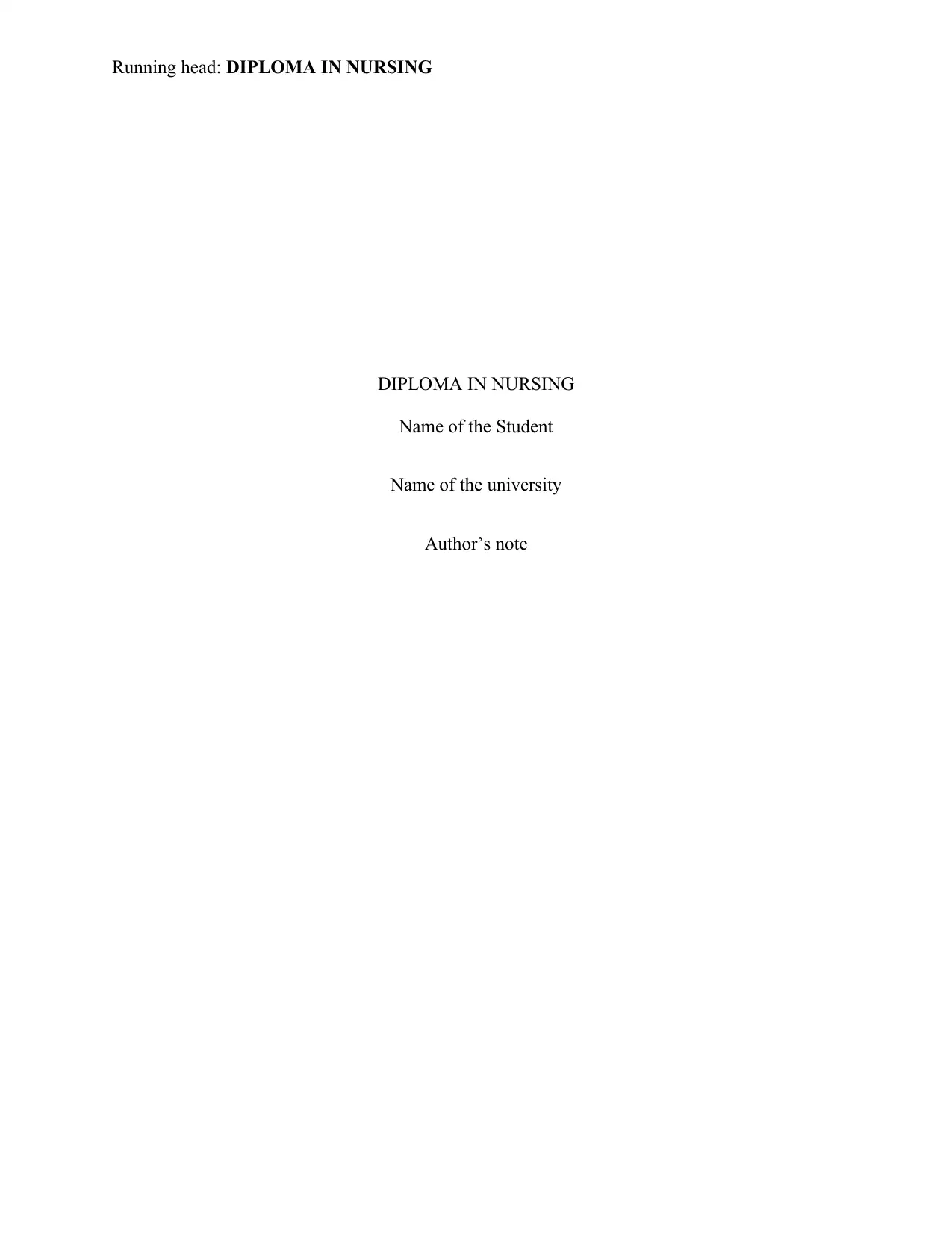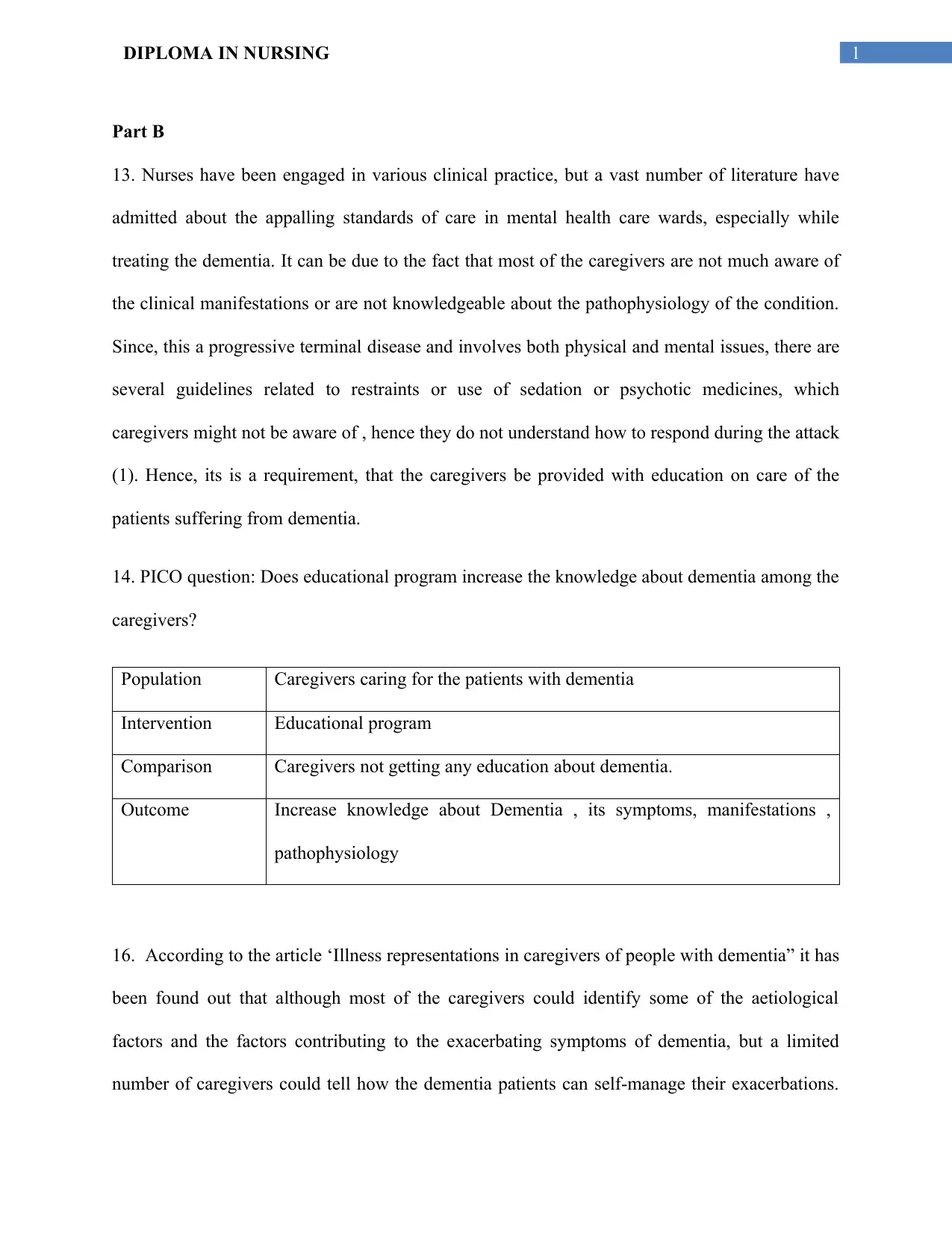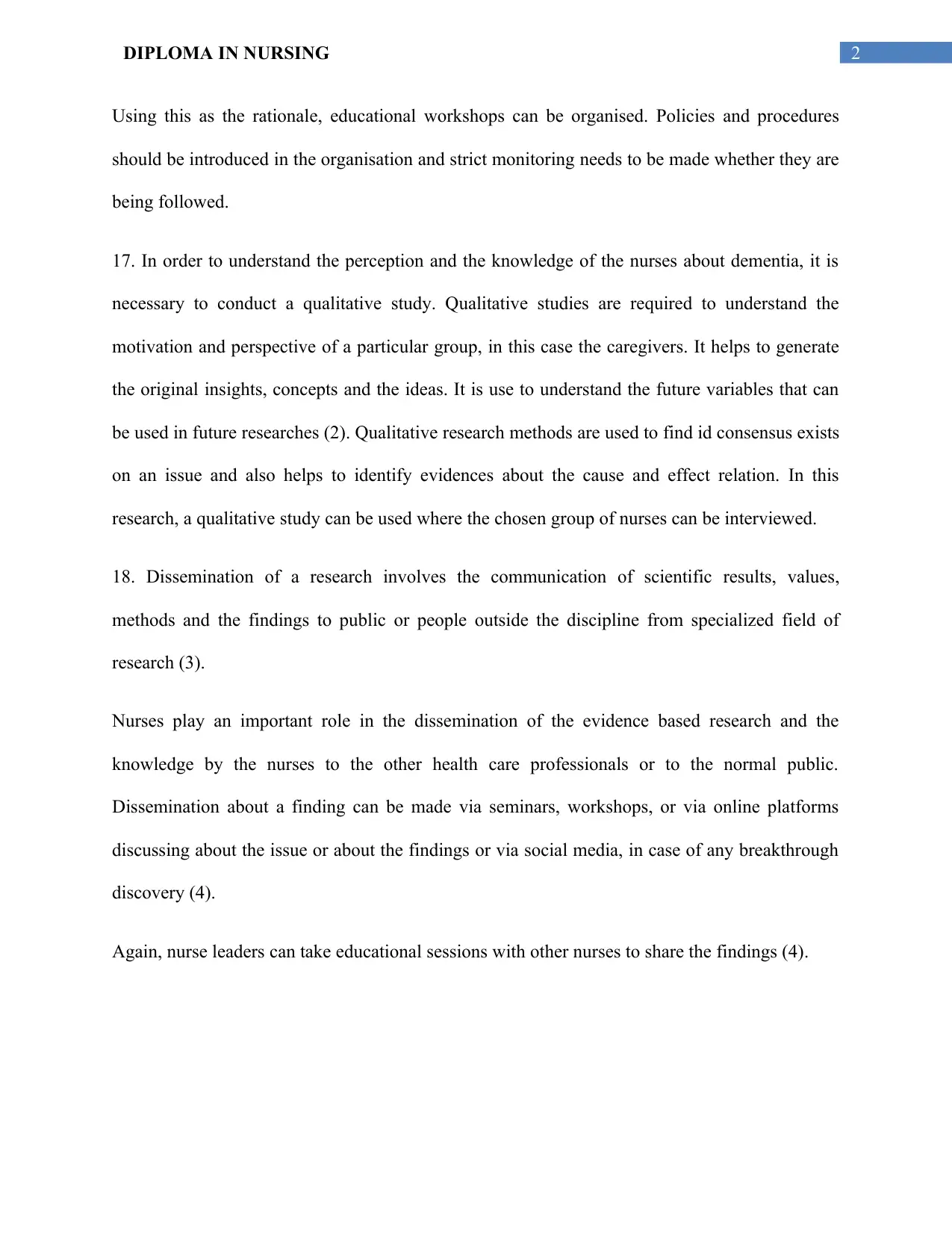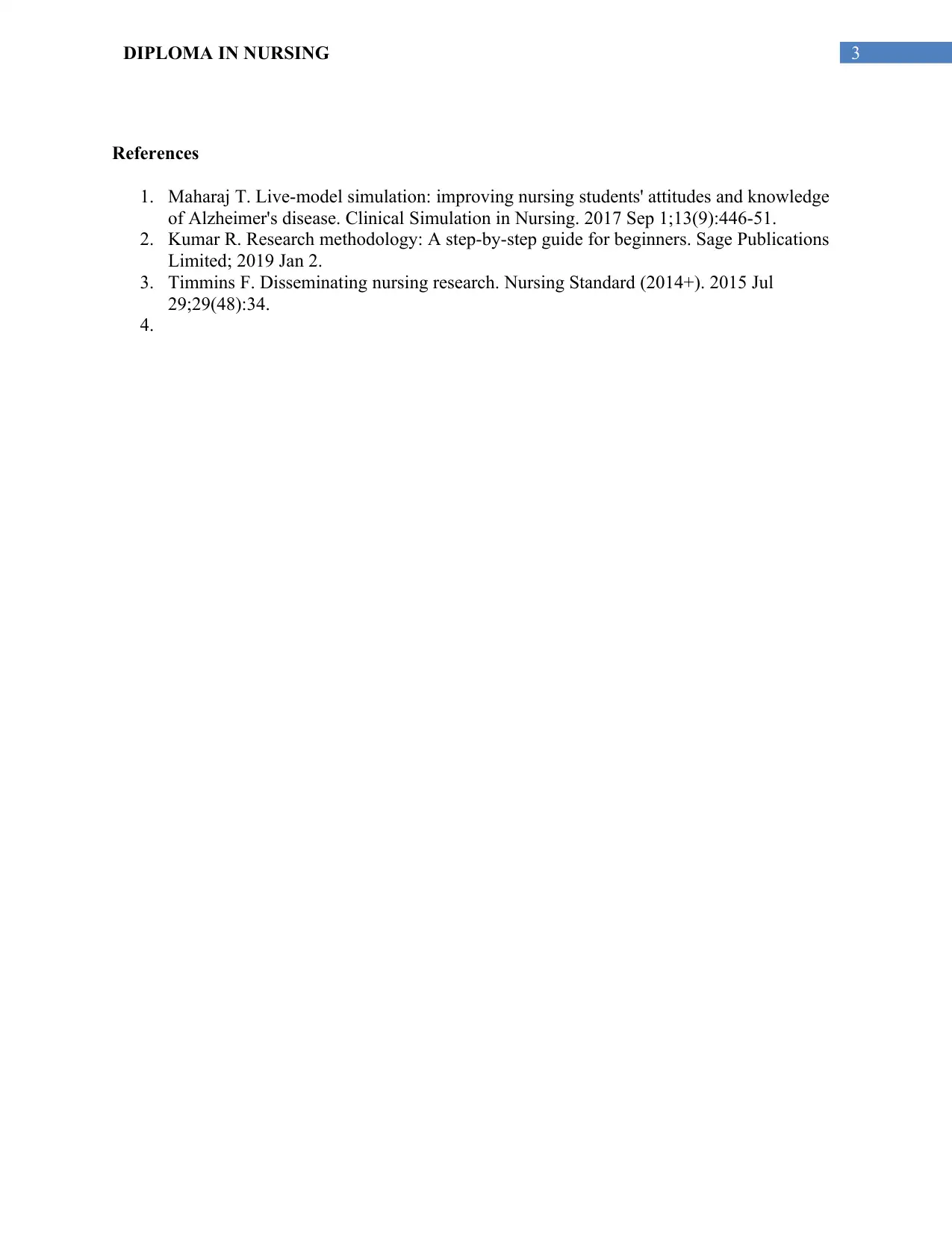University Nursing Report: Dementia Caregiver Education Program
VerifiedAdded on 2022/09/16
|4
|643
|19
Report
AI Summary
This nursing report addresses the critical need for caregiver education in dementia care, particularly in light of observed deficiencies in mental health care settings. The report begins by highlighting the challenges caregivers face due to limited knowledge of dementia's clinical manifestations and treatment guidelines. It poses a PICO question to evaluate the effectiveness of educational programs in enhancing caregivers' knowledge of dementia. The report then draws on research findings, emphasizing the importance of educational workshops and the implementation of organizational policies and procedures. A qualitative study is proposed to understand nurses' perceptions and knowledge of dementia, recognizing the value of such methods in generating original insights. The report concludes with a discussion on the dissemination of research findings through various channels, including seminars, workshops, and online platforms, emphasizing the role of nurses in sharing evidence-based knowledge. References from Maharaj, Kumar, and Timmins are included to support the report's claims and recommendations. The assignment also references an article on illness representations in caregivers of people with dementia, further supporting the need for caregiver education.
1 out of 4










![[object Object]](/_next/static/media/star-bottom.7253800d.svg)